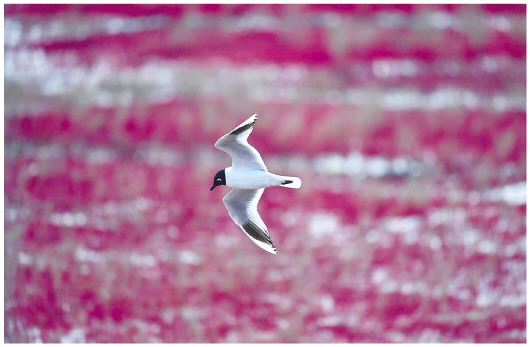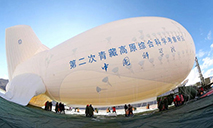EU's attempt to ban Russian oil imports reaches deadlock
BRUSSELS, May 20 (Xinhua) -- Member states of the European Union (EU) have failed to reach an agreement over a Russian oil embargo, considered the core part of a sixth package of sanctions proposed by the bloc earlier this month.
With Hungary locked in intense haggling with the EU on the proposal, an agreement to break the deadlock remains elusive.
On May 4, European Commission (EC) President Ursula von der Leyen proposed a plan that the EU will phase out Russian supplies of crude oil within six months and refined products by the end of the year.
"Finally, we now propose a ban on Russian oil. Let's be clear: it will not be easy," she tweeted.
It definitely won't be easy for the EU to wean itself off Russian oil imports, the bloc's single largest oil supplier in 2021, accounting for around 30 percent of the EU's oil imports.
For some landlocked countries that are heavily dependent on Russian energy supplies, an embargo of Russian oil can translate into aggravated price hikes and weigh on their economy.
Take Hungary, for example. Russia has been supplying 60 percent of its oil demand and 85 percent of its natural gas demand.
Hungary has been adamant in blocking the EU-proposed Russian oil embargo, which requires a consensus among all EU member states.
The EU has offered the Czech Republic, Hungary and Slovakia a compromise, allowing them to implement the embargo from the middle or end of 2024.
Meanwhile, the EC recently unveiled that it will allow around two billion euros (2.11 billion U.S. dollars) to be spent on oil infrastructure.
However, the compromise failed to sway Hungary.
Hungarian Prime Minister Viktor Orban insisted that the EU sanctions against Russia would wreak havoc on Hungary's economy, costing a substantial amount of money and five years for his country to cut off Russian oil, he said.
On Monday, Hungarian Foreign Minister Peter Szijjarto said that it would cost 15 to 18 billion euros (15.8 to 19 billion dollars) to modernize his country's energy infrastructure.
The EU has slapped five rounds of sanctions on Russia since the Russia- Ukraine conflict erupted two more months ago.
The sanctions, aimed at crippling the Russian economy, have not achieved their desired effect. Instead, the blowback of the sanctions is eating into the European economy, adding to stagflation risks.
According to a report released by the International Energy Agency recently, Russian oil revenue soared by 50 percent from a year ago.
At the same time, sanctions have taken a toll on the EU economy, with price hikes undermining economic growth in the bloc.
The EC economic forecast released on Monday depicted a bleak picture for the EU and euro area economy in 2022.
"The outlook in the EU is now for lower growth and higher inflation, especially for 2022," said the forecast report.
Real GDP growth in both the EU and the euro area is now expected at 2.7 percent in 2022 and 2.3 percent in 2023, down from 4.0 percent and 2.8 (2.7 percent in the euro area), respectively, in the Winter 2022 interim forecast, according to the report.
European Commissioner for Economy Paolo Gentiloni warned that the forecast remains subject to high uncertainty and risks closely linked to the development of the Russia-Ukraine conflict.
"Other scenarios are possible under which growth may be lower and inflation higher than we are projecting today," he cautioned.
Photos
 China’s central bank to issue commemorative coins on cultural theme of auspiciousness, including two heart-shaped coins
China’s central bank to issue commemorative coins on cultural theme of auspiciousness, including two heart-shaped coins Population of endangered black-headed gulls exceeds 10,000 mark in NE China’s coastal city of Panjin
Population of endangered black-headed gulls exceeds 10,000 mark in NE China’s coastal city of Panjin China's self-developed floating airship breaks record
China's self-developed floating airship breaks record Chinese germplasm bank conserves biodiversity in warm temperate zone
Chinese germplasm bank conserves biodiversity in warm temperate zone
Related Stories
- Scholz says no shortcuts to Ukraine's EU membership bid
- UN chief urges reintegrating agricultural production of Russia, Ukraine into world markets
- Russian, U.S. military chiefs discuss Ukraine over phone
- Russia expels 27 Spanish diplomats in retaliation
- Russia withdraws from Council of Baltic Sea States
Copyright © 2022 People's Daily Online. All Rights Reserved.






